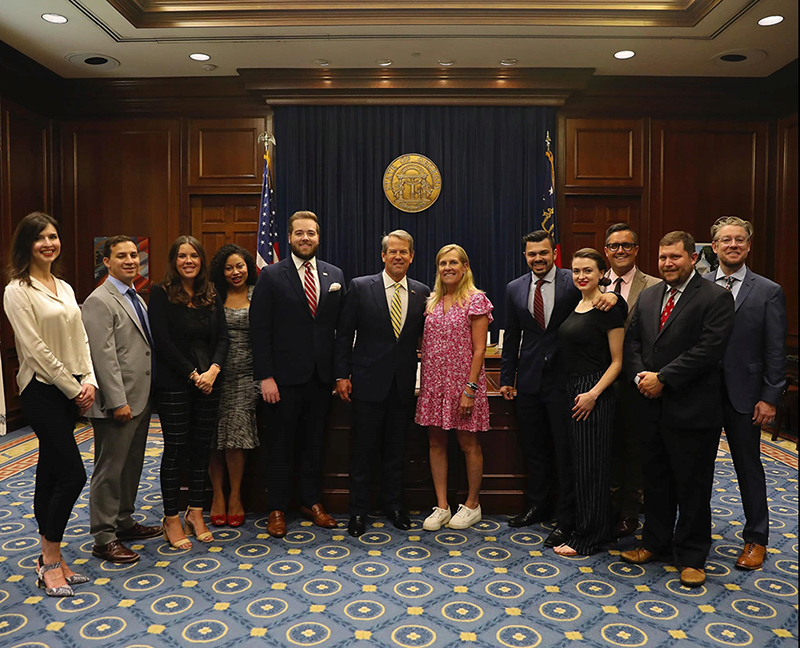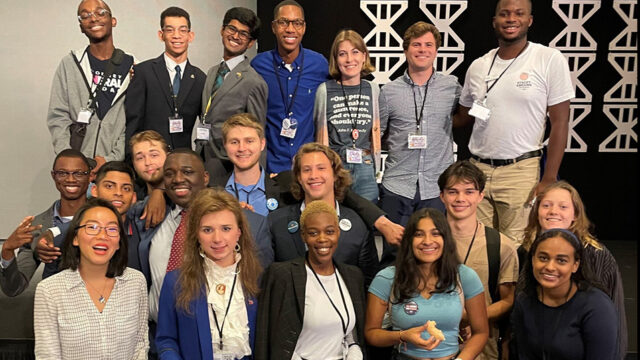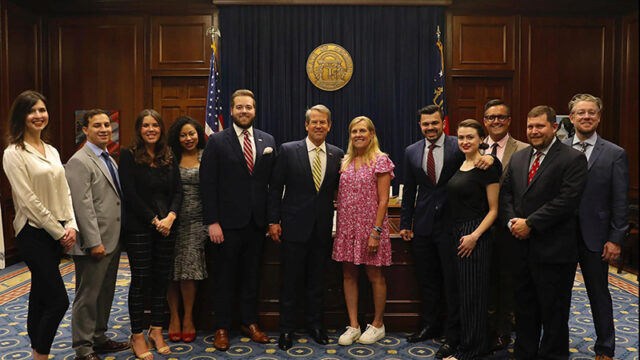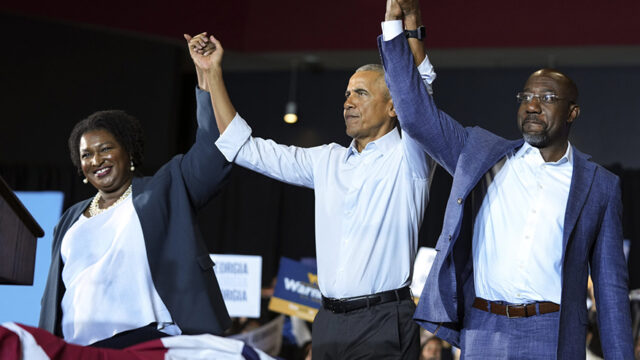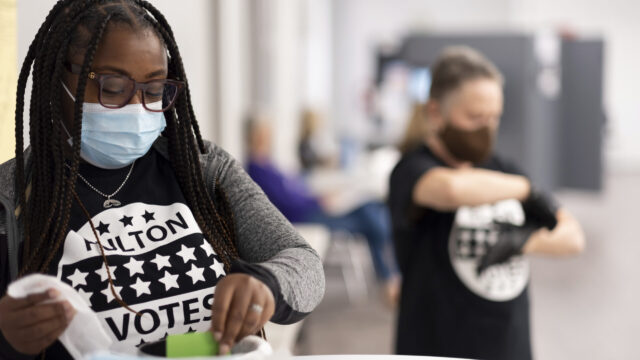In one of the most consequential elections in Georgia history, Democratic and Republican candidates are working hard to gain the attention and trust of voters, young and old, the former in particular.
Georgia’s Gen Z voters, ages 18-25, remain a highly sought-after demographic.
Georgia has experienced an eventful year with issues primarily concerning young people, including student loan forgiveness and gun violence. But there is concern that early voting numbers don’t include a high representation of Gen Z voters, despite record-breaking turnout overall for the state.
“You hear all over the place, ‘the number of young people that voted the last election was higher than it had ever been, and then the last time before that and the last time before that.’ That’s from a numerical standpoint,” said Tammy Greer, a professor of political science at Clark Atlanta University. “From a percentage standpoint, young people as a whole are not voting at their weight.”
“Young people are the ones who will face the long-term repercussions of today’s policy choices,” said James Wenz, outreach coordinator for the Civics Center, a national nonprofit organization dedicated to building voter participation among high school students. “This gives us a unique perspective: we’re not only thinking about what life is like now but what it’s going to be like in 50 years living in this country. Unfortunately, young people aren’t participating in our elections as much as older citizens, so that perspective goes unrepresented in our government.”
Former U.S. Sen. Kelly Loeffler has noticed in her interactions with young people through her nonprofit organization, Greater Georgia, that many are not adamant against voting, but rather feel insecure about whether they have the knowledge and understanding of policy and legislation to create an informed decision.
“Young voters know a lot more than what they give themselves credit for. I’ll often hear a young person say, ‘I don’t study policy’ or ‘I don’t really know a lot about politics,’ but when you start to talk to them about the issues, they innately understand what’s going on,” she said.
“From a percentage standpoint, young people as a whole are not voting at their weight.”
Tammy Greer, political science professor at Clark Atlanta University
According to data conducted by the Pew Research Center, while a higher percentage of Georgia voters in the age range of 18-29 identity as Democrats (24%) rather than Republicans (19%), a majority of voters within the sample population identified as independent (30%).
How does a voter that fits into the latter category make an informed decision on who to vote for?
“I think it is clear that Georgians are rallying behind Kemp,” said Georgia Young Republican executive director Jacquelyn Harn. “We haven’t forgotten that against former President Trump’s advice, Gov. Kemp worked to keep Georgia open for business during the pandemic. Throughout his first term as governor, he has continuously worked to put Georgians first. That speaks volumes to Georgians, despite your political affiliation.”
“He opened Georgia back up for business… if we did it the Stacey Abrams way, our kids still would not be in school,” said Andrew Abbott, president of the Georgia Young Republicans organization. “He signed in the law slashing the income tax; he signed in the law of the teacher pay raise. He created a surplus while cutting taxes, which is not an easy thing to do.”
“Look at whose addressing young voters’ policies and who’s not,” said Bryce Berry, president of the Young Democrats of Georgia. “Overall, if you look at the political agenda for young voters right now, it would be gun safety, keeping us safe in schools, student loan forgiveness. When you have those types of policies, and you look at the Republican side, who are not addressing climate change, not wanting to pass voter rights acts, that’s why you see so many voters who are coming over to the Democratic party because the Democratic party addresses our issues.”
“Young people are the ones who will face the long-term repercussions of today’s policy choices.”
James Wenz, outreach coordinator for the Civics Center
Democratic U.S. Sen. Raphael Warnock, currently running for reelection, says one of his primary goals while in office has been securing the opportunity for young people to receive a high-quality education without the hassle of high debts and tuition.
“I’m fighting to make college more affordable for our young people. Canceling student loans will lower costs and provide real relief for hardworking families feeling the impact of rising prices. Whether attending a two-year college, a four-year college, a trade school or a vocational school, our young people today are graduating with a mortgage before they even have the chance to get a mortgage,” the Morehouse College alum said.
Jaylen Black, press secretary for Abrams, notes that the main appeal that her candidate has had with Gen Z voters has been her dedication to fighting for issues that have been deemed crucial to young Georgia residents.
“We understand that young people are frustrated by many of the issues they see in our state. From stagnant wages, a rise in rent prices, a spate of gun violence, and more. Our campaign is committed to listening to the problems that Gen Z voters face,” she said. “Stacey is offering policy plans that align with what young people care about today, including making technical college free, creating affordable housing, repealing Brian Kemp’s draconian six-week abortion ban, and strengthening our state’s gun laws.”
“The issue that we see most frequently from this age group is no different than what we see from all the other age groups. It is inflation, the cost of living, the ability to get a good paying job,” said Loeffler. “While we see the left-leaning policies focused on things like abortion and marijuana legalization, those issues aren’t really motivating young voters to get to the polls.”
In response to reproductive rights initiatives from Democratic party candidates, Abbott noted that while most media outlets portrayed many young voters as opposed and outraged over the Roe v. Wade overturned, the decision led to a significant increase in members within various Georgia Young Republican chapters.
“Roe v Wade was put in place in 1973, I believe. At the time, we couldn’t see pictures of an unborn little girl, and now we can,” said Abbott. “Our generation has a lot of empathy and believes in following science where it leads.”
*Editors note: Ultrasound technology was invented in 1956 and became available in America in the 1970s.
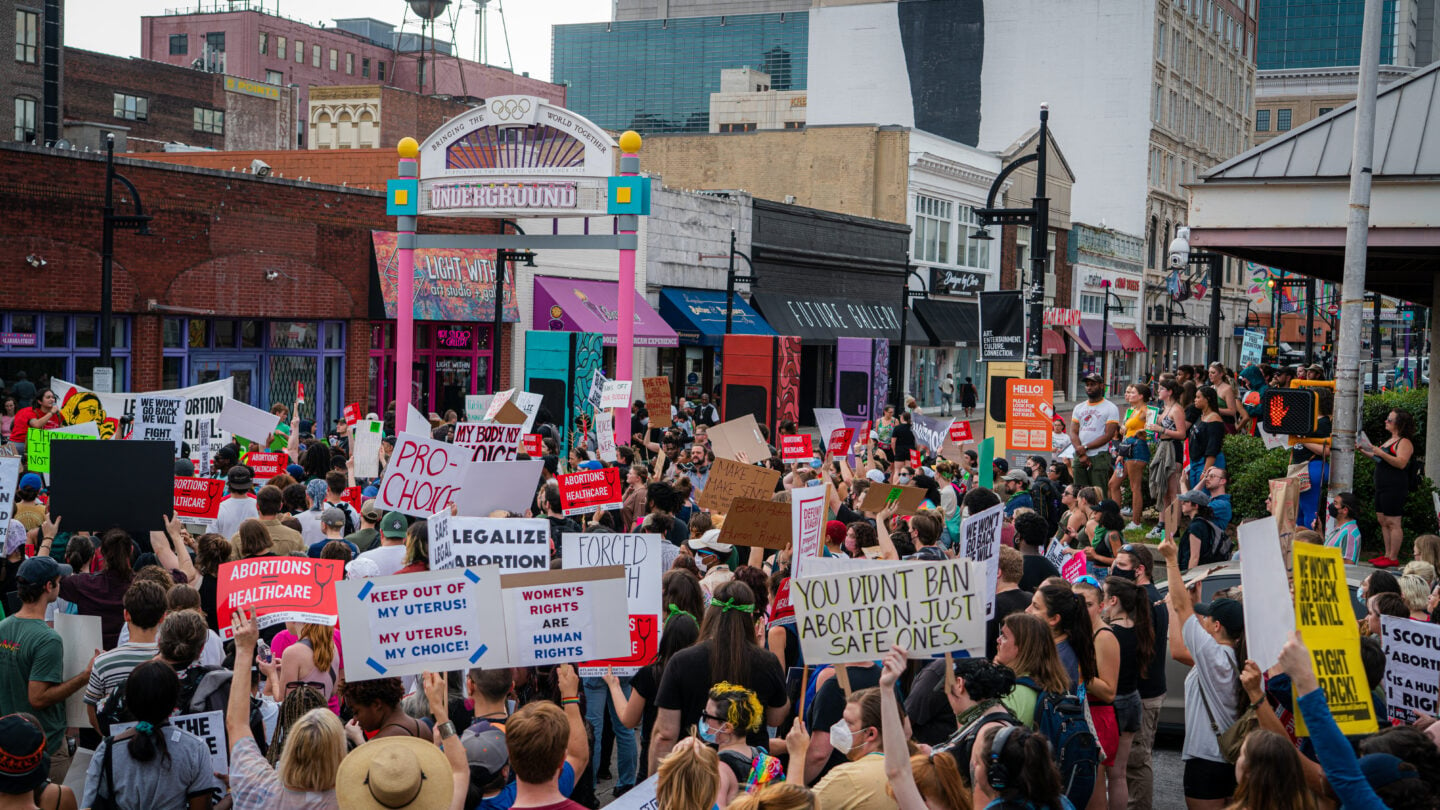
Niles Francis, a 21-year-old Georgia State University student and political blogger, believes that empathy and concern for potential victims of sexual assault and incest victims, as well as low-income expectant mothers, will have a greater motivation overall for Gen Z voters to fight for abortion rights rather than against it.
“Many people in our age group, in all likelihood, know somebody who has an abortion or who may have unfortunately been raped or sexually assaulted,” he said. “In this generation, you are seeing a lot of younger voters gravitate to the Democratic party on that issue because they realize that Republicans want to ban abortion, and Republican politicians, such as Justice Clarence Thomas, wants to come after contraception and LGBTQ rights. Younger voters are worried that if they can ban abortion, what else is next.”
